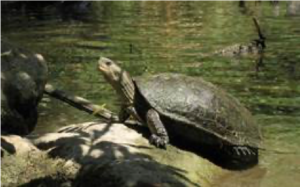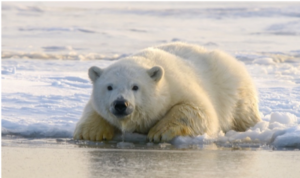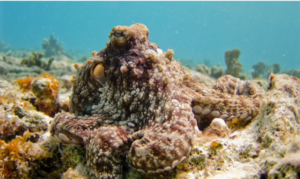The Animal Law & Policy Clinic’s Fall 2020 semester was extremely busy!
The Clinic filed an amicus brief in the U.S. Supreme Court in support of the Sierra Club’s effort to obtain access to draft Biological Opinions issued by scientists at the Fish and Wildlife Service and the National Marine Fisheries Service.  These opinions concern the adverse impacts of cooling water intake structures, used by coal-fired power plants around the country, that suck up and kill protected species (fish, crustaceans, and other animals). The government is contending that such draft documents—and any document labeled a “draft” by the government—are per se exempt from disclosure under the deliberative process exemption to the Freedom of Information Act. Our amicus brief, filed on behalf of the Center for Biological Diversity and Defenders of Wildlife, argues that this is not the case, and that at an absolute minimum, all factual and scientific information must be disclosed to the public. The case was argued on the first day of the Court’s new term in October 2020. A copy of the brief and commentary by Clinic Director Katherine Meyer on the oral argument for the multimedia judicial archive, Oyez, can be found online.
These opinions concern the adverse impacts of cooling water intake structures, used by coal-fired power plants around the country, that suck up and kill protected species (fish, crustaceans, and other animals). The government is contending that such draft documents—and any document labeled a “draft” by the government—are per se exempt from disclosure under the deliberative process exemption to the Freedom of Information Act. Our amicus brief, filed on behalf of the Center for Biological Diversity and Defenders of Wildlife, argues that this is not the case, and that at an absolute minimum, all factual and scientific information must be disclosed to the public. The case was argued on the first day of the Court’s new term in October 2020. A copy of the brief and commentary by Clinic Director Katherine Meyer on the oral argument for the multimedia judicial archive, Oyez, can be found online.
We also wrote briefs in opposition to motions to dismiss two of our cases pending in federal district courts. The first case, pending in a district court in Maryland, involves an effort by our clients, Rise for Animals (formerly New England Anti-Vivisection Society) and the Animal Legal Defense Fund to have the United States Department of Agriculture promulgate better standards for the psychological well-being of primates used in research, pursuant to the requirements of the Animal Welfare Act.
The second case, pending in New York district court, challenges the USDA’s denial of a Rulemaking Petition to set standards under the Poultry Products Inspection Act for the humane handling of the more than nine billion chickens, turkeys, and ducks slaughtered ever year for human consumption. It was filed on behalf of the Animal Welfare Institute and Farm Sanctuary. The USDA has moved to dismiss both cases for lack of Article III standing. Students took the lead in drafting the opposition briefs, and we await the scheduling of oral arguments in both cases. You can read a copy of these briefs on our website.
Clinic students also prepared a detailed submission to the new Biden-Harris Administration on behalf of the Center for Biological Diversity, and more than 20 of the nation’s leading climate scientists and prestigious law professors specializing in climate law.  It requests that the new Administration rescind several policies directing federal agencies not to consider the adverse effects of climate change when making decisions that could affect species already listed as either endangered or threatened with extinction under the Endangered Species Act. Some of these policies have been in place since 2008. A copy of the letter and press release is available online. News outlets including E&E News and Harvard Law Today covered the story.
It requests that the new Administration rescind several policies directing federal agencies not to consider the adverse effects of climate change when making decisions that could affect species already listed as either endangered or threatened with extinction under the Endangered Species Act. Some of these policies have been in place since 2008. A copy of the letter and press release is available online. News outlets including E&E News and Harvard Law Today covered the story.
In partnership with Balanced.org and the Massachusetts Healthy School Food Coalition (MAHSFC), the Clinic also developed and presented policy recommendations for improving the nutrition of meals served in Massachusetts schools, including more plant-based meals.
This fall we continued to litigate a Freedom of Information Act case in federal district court against the USDA concerning its policies for limiting inspections of research labs under the Animal Welfare Act, forcing the agency to release hundreds of pages of responsive records. Here is a copy of the Complaint.
 In further support of our pending petition to treat cephalopods (octopus, squid, cuttlefish) as “animals” subject to the humane handling requirements that apply to all federally funded research, we compiled and submitted additional evidence to the National Institutes of Health, including the award-winning documentary “My Octopus Teacher.”
In further support of our pending petition to treat cephalopods (octopus, squid, cuttlefish) as “animals” subject to the humane handling requirements that apply to all federally funded research, we compiled and submitted additional evidence to the National Institutes of Health, including the award-winning documentary “My Octopus Teacher.”
The Clinic worked on several other projects that cannot yet be discussed publicly, including other cases and projects on behalf of farmed animals, animals used in research, and wildlife.
As always, we remain extremely grateful to the entire Animal Law & Policy team—Kristen Stilt, Chris Green, Sarah Pickering, Kate Barnekow, Ceallaigh Reddy, and Marina Apostle—who make all of our work possible. And we thank our wonderful and outstanding students—several of whom have continued to stay in the Clinic for successive semesters—who do such hard, challenging, and important work on behalf of nonhuman animals. Their passion and dedication continue to inspire us!
Katherine Meyer, Clinic Director Nicole Negowetti, Clinical Instructor


